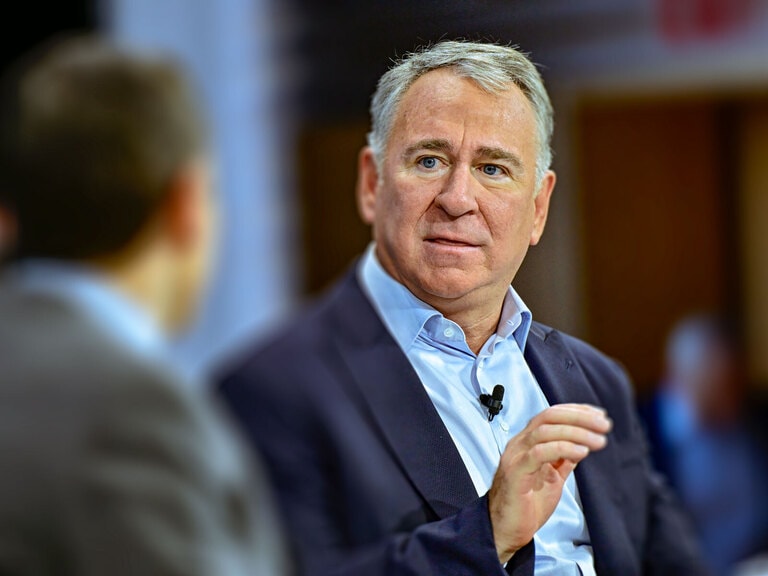BlackRock continues to broaden its investment products that track megatrends with the launch of a new ETF that’s focused on companies involved in agricultural technology and innovative solutions for sustainable food supply. The industry has continued to grow as issues of food security come to the fore, with some of the fund’s key holdings seeing considerable growth so far in 2022.
The iShares Emergent Food and AgTech Multisector ETF’s [IVEG] first week of trading was largely positive, indicating strong demand for the burgeoning agricultural technology industry.
The fund, which tracks companies listed on the Morningstar Global Food Innovation Index, had debuted on the Nasdaq at $22.82 on 2 May and rose close to 1% to $23.50 by the close of 6 May.
Despite the largely flat performance, the fund outpaced the Global X AgTech and Food Innovation ETF [KROP], which fell 1.9% over the same period. Its peer is down 10.2% since the start of the year amid the general downturn in tech-related stocks.
As of 6 May, the fund had net assets worth $5.9m and 39 holdings. Its constituents included stocks such as Bayer [BAYN], Packaging Corporation of America [PKG] and agricultural machinery giant Deere [DE], which offer exposure to the revolutionary advances in agricultural technology and sustainable food innovation.
Florida-based potash miner Mosaic [MOS] had the biggest weighting in the fund at 6.8%, followed by fertiliser firm Nutrien [NTR] at 5.5%, food processing company Archer Daniels Midland [ADM] at 5.4% and agricultural chemical and seed firm Corteva [CTVA] at 4.7%.
$5.9m
iShares Emergent Food and AgTech Multisector ETF's holdings as of 06 May 2022
Food security issues back in the spotlight
The launch of the iShares Emergent Food and AgTech Multisector ETF comes at a time when food security and sustainable farming are at the front of many people’s minds.
With the Russia-Ukraine war thrusting global food security fears back into the spotlight, the agricultural technology sector is likely to play an increasingly important role in ensuring countries have access to adequate supply of food.
Even before the war broke out, supply chain disruptions from the coronavirus pandemic and climate change were putting pressure on countries struggling to feed their populations. Last year, the UN revealed that more than 2.3 billion people, which accounts for 30% of the world’s population, lacked year-round access to adequate food supply in 2020.
Emissions from food production are another growing concern that the agricultural technology industry will play a key role in tackling. According to Rachel Aguirre, head of US iShares product, 34% of global emissions can be attributed to global food production. “If we’re going to limit the impact of climate change and address it, we really are going to need to find innovations and solutions in this space,” she said at the launch of the Emergent Food and AgTech Multisector ETF.
34%
Global emissions attributable to global food production, according to Rachel Aguirre, head of US iShares product
The agricultural technology industry is forecast to keep climbing, with Insight Partners predicting that the global market will expand at a compound growth rate of 12.1% between 2020 and 2027.
Agricultural tech stocks gain in 2022
A number of the fund’s key holdings have seen outsized growth so far this year. At the close on 6 May, Mosaic’s share price had rocketed 63.4% since the start of 2022, fuelled by rising demand for concentrated phosphate and potash for the global agriculture industry.
According to Zacks Investment Research, Mosaic has customers in 40 countries and accounts for 11% of global annual potash production. First-quarter revenues rose 71% year-over-year to $3.9bn, with chief executive Joc O’Rourke declaring: “We take our responsibility of helping the world grow the food it needs very seriously and are working to mitigate some of the impact of reduced global supply by efficiently maximising output.”
Meanwhile, the Corteva share price has soared 19% so far this year, boosted by first quarter sales rising 10% to $4.6bn. It has seen strong demand for rice herbicide Rinskor and fungicide Zorvec, which is used to tackle issues such as late blight in cucumbers, grapes and potatoes. The company’s recent innovations include a hybrid oilseed rape with built-in tolerance to the yield-sapping disease sclerotina and a biostimulant allowing plants to capture nitrogen from the air.
Deere is also boosting farming efficiency with technologies such as autonomous tractors, data analysis and satellites to raise yields and reduce fuel and fertiliser usage. However, with the price for fuel and fertilizer rising amid the supply bottlenecks brought on by the Russia-Ukraine conflict, this could have an impact on demand for companies like Deere in the coming years.
Continue reading for FREE
- Includes free newsletter updates, unsubscribe anytime. Privacy policy





